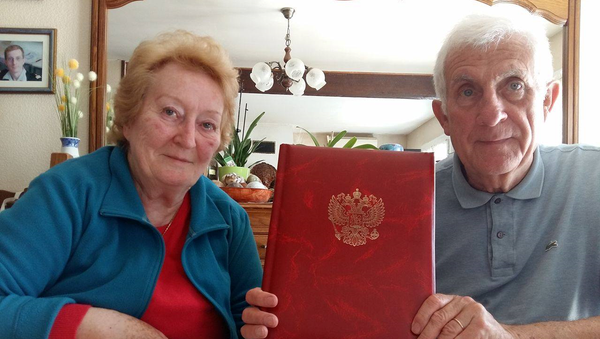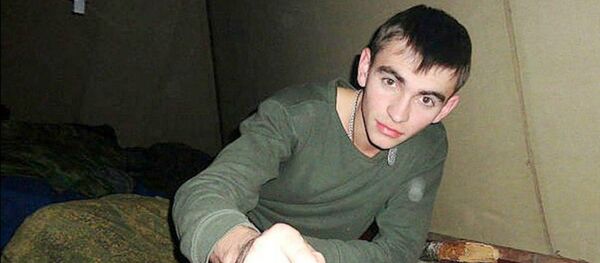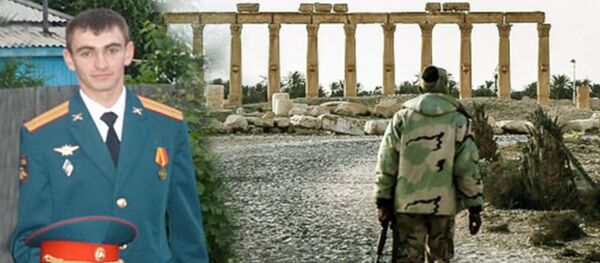"We were stunned, and very moved. We did not expect that our gesture, which came from the heart, would have such consequences," the couple said, commenting on the Russian president's invitation to attend the Victory Day Parade in Moscow on May 9.
Earlier, the Magues sent two WWII-era military medals belonging to their family, along with a letter of gratitude, to the Russian ambassador in France, asking him to forward the medals to the family of Alexander Prokhorenko, the Russian officer who died in Syria during the liberation of the ancient city of Palmyra from Daesh terrorists in March.
In response to the poignant gesture, President Putin sent the couple a personal invitation to visit Moscow on May 9, and said that he would like to meet them personally.
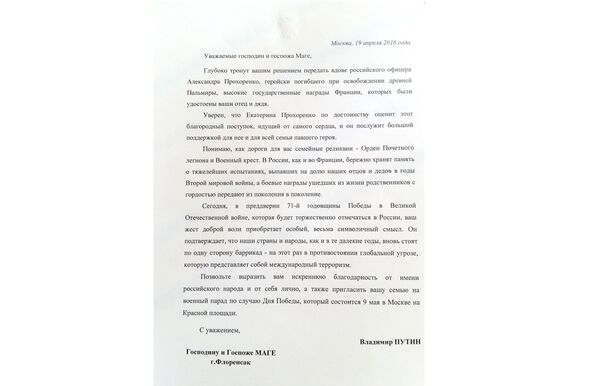
Everything began in late March, when Russian media announced the death of Prokhorenko, a young officer serving in Syria, who called in airstrikes on his position when it became clear that he had been surrounded by Daesh militants outside Palmyra.
In their letter to the Russian ambassador, the Magues complained that the story hadn't been covered in French media. However, the couple's act of generosity soon made up for that, and their story quickly spread around the world after it was revealed that they would send the National Order of the Legion of Honor (the highest French order for military and civil merits) and the War Cross 1939-1945, medals bestowed on two members of their family for their feats of heroism in the Second World War.
Speaking to Sputnik, Jean-Claude and Micheline Mague explained why Prokhorenko's story struck a chord with them. "We remembered our own son, who was killed in Sarajevo, in Bosnia, although he did not die on the battlefield. We learned of his death just like that, by a phone call."
And so, they decided to send the Prokhorenkos the most valuable thing they had: two war medals received by their relatives for service in the Second World War.
The medals, they explained, aren't the only ones in their family's collection, but carry a special significance. The Legion of Honor medal was awarded to Micheline's uncle. "He was my godfather, and I loved him very much," she noted.
A radio engineer and a member of the 'Alliance' resistance group, the uncle had been captured by the Gestapo and deported to Buchenwald at age 17. Unlike his commander, who jumped out of the rail car on the way to the concentration camp, he stayed, "fearing retaliation against his family."
The War Cross belonged to Micheline's father, a bomber pilot, who answered General Charles de Gaulle's legendary appeal of June 18, 1940 to continue the fight against the Nazi German occupation after France's capitulation.
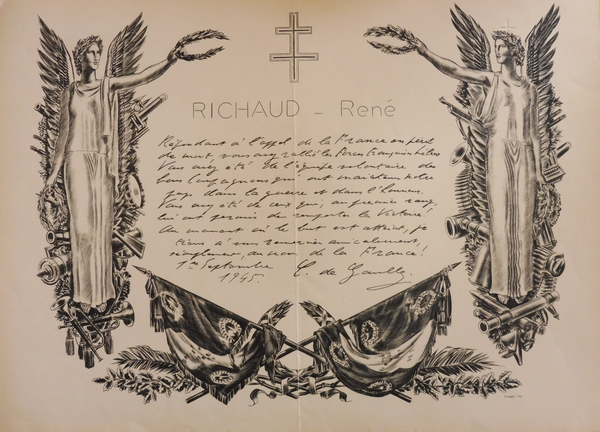
With the Magues spending part of their careers in the military, their son too would follow in his family's footsteps, becoming a captain in the French Army's engineering forces.
"When my son would jump on my lap, it would be to a military march," Micheline recalled. And there was always a connection with Russia, she added. While he was serving in the Western Sahara, a Russian officer presented her son with his cap.
Admirers of classical Russian writers and musicians Leo Tolstoy, Sergei Eisenstein and Alexander Borodin, the Magues will soon get a chance to discover another side of Russia, something they said was completely unexpected.
"We just put ourselves in the place of the parents who lost their 25-year-old son, who felt the same pain we did when we lost ours. And that was it. We did not want anything else, not politics or anything else."
Now, they have been invited to Victory Day celebrations on May 9. For the couple, who has lived in the small southern French town of Florencsac for 20 years, the invitation carries with it a special significance. All stories overlap, Jean-Claude Mague reasons, but "one fine day, all wars will end."

